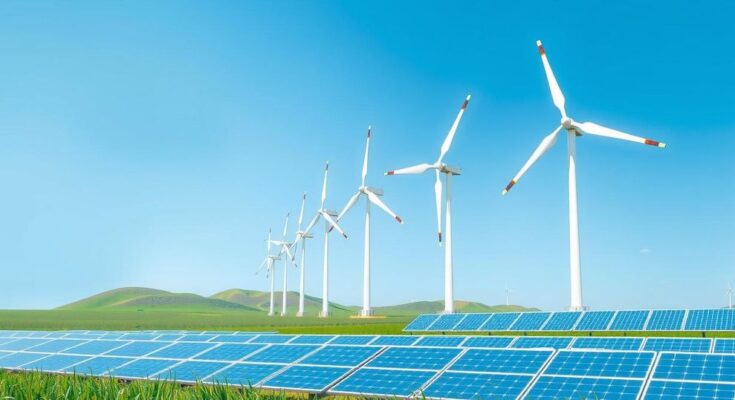Clean energy leaders are shifting their message to focus on wealth creation and job opportunities rather than solely environmental concerns. This strategy change responds to the political climate under leaders prioritizing economic growth. U.N. officials emphasize appealing to self-interest, while industry representatives advocate for tax incentives to ensure competitiveness. The new approach aims to engage diverse audiences, especially conservatives, by aligning clean energy with economic prosperity.
In a shift from environmental advocacy, clean energy leaders are now focusing on economic benefits, particularly wealth creation and job opportunities. This change in strategy has emerged as political landscapes evolve, particularly under President Trump, who initiated rollbacks of clean energy initiatives. Clean energy advocates are now lobbying with messages of energy dominance and economic growth, emphasizing their contributions to a robust energy economy.
At a recent policy speech in Brazil, U.N. climate official Simon Stiell highlighted the $2 trillion investment flowing into clean energy, noting the importance of appealing to self-interest for broader support. Former U.S. Representative Bob Inglis emphasized that promoting profit potential resonates well with conservative audiences, who are more willing to engage with messages centered on financial gains and job creation.
The clean energy sector is proactively promoting jobs associated with solar, wind, and electric vehicle industries as a core argument. U.N. officials encourage the framing of self-interest not as a negative but as a motivating factor in addressing climate issues. Princeton University’s Michael Oppenheimer supports this view, suggesting that leveraging economic incentives could foster collective solutions to climate challenges.
Industry representatives are actively communicating with lawmakers, advocating for vital tax incentives necessary for global competitiveness. Jessie Stolark of the Carbon Capture Coalition points out that while previous messaging focused on climate mitigation, the current strategy prioritizes economic and job-related arguments to engage Republican lawmakers. This approach seeks common ground and practical solutions to move the conversation about energy forward.
Liz Beardsley from the U.S. Green Building Council states that economic considerations have consistently been a central theme of their advocacy, emphasizing that environmental good aligns with business interests. Lisa Sachs from the Columbia Center on Sustainable Investment notes the clarity in the current message, contrasting it with past confusion in the climate discourse, while recognizing the limitations of the private sector in achieving full decarbonization.
Energy officials possess significant influence, and given the current political landscape, a shift in strategy is vital. Climate historian Joanna Depledge asserts that focusing solely on the climate crisis may not yield effective results, indicating a need for a pragmatic approach to climate policy moving forward.
The article outlines a significant strategy shift among clean energy advocates, who are now framing their initiatives around economic benefits rather than solely environmental concerns. This evolution in messaging is particularly relevant in the context of changing political dynamics, especially under leadership that prioritizes economic growth, job creation, and energy dominance. The emphasis on self-interest as a motivator is gaining traction in discussions concerning clean energy, potentially serving as a bridging message to engage diverse political audiences and promote sustainable practices.
In conclusion, clean energy advocates are strategically pivoting towards emphasizing economic advantages, specifically wealth creation and job opportunities, to garner broader political support for their initiatives. As the landscape shifts, particularly amid new policy directions, leveraging self-interest appears to be an effective approach in promoting clean energy while addressing climate challenges in a pragmatic manner. This evolving narrative may enhance engagement with various political factions, particularly conservatives, in fostering a robust clean energy economy.
Original Source: www.washingtonpost.com




